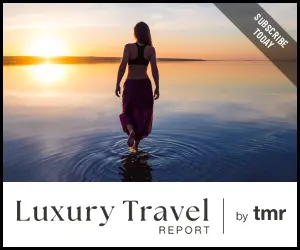5 Luxury Travel Trends That Matter in 2025, According to Skift
Skift’s latest report reveals what’s driving luxury travel in 2025, from AI-powered personalization to rising demand for experience-led itineraries.

Photo: Courtesy of Four Seasons Koh Samui
Each year, Skift’s State of Travel report, released earlier this month, acts as a barometer for the global travel industry, and the 2025 edition is especially revealing. Using proprietary research and insights from more than 20 data partners, the report examines everything from tourism recovery and consumer behavior to emerging technologies and macroeconomic headwinds.
Still, despite global uncertainty, the outlook for luxury travel remains optimistic. Travelers are still booking—and increasingly, they’re seeking more profound experiences, smarter support, and more intentional spending. Advisors navigating this evolving landscape will find much to consider in the 300-plus insights compiled by Skift.
But for those serving high-net-worth clients, a few key trends stand out:
Luxury Experiences Are Growing Despite Economic Uncertainty
While price sensitivity is rising in some segments, demand for high-end experiences remains robust. According to data from Allianz Partners, 31% of U.S. travelers are investing in luxury experiences—up four percentage points from 2024. For travel advisors, this confirms what many have already observed: Clients may trim trip length or reduce flight class, but they’re not skimping on immersive, memory-making moments.
AI Is Reshaping Service Expectations
Artificial intelligence is no longer a back-end tool; instead, it’s fast becoming central to how travel is sold, booked, and supported. Allianz has begun approving claims in as little as six hours, thanks to AI, while 61% of travel marketers (according to Epsilon) are now using AI for customer journey mapping. As a result, clients are increasingly expecting hyper-personalized service, not just at the hotel, but across every stage of their journey.
Travelers Are Tired of Buzzwords
The terms “authentic” and “sustainable” have become so overused that they’re losing credibility with clients. Executives from both Allianz and Epsilon warn that today’s travelers are more discerning—they want real proof, not empty marketing. Advisors should demand clarity from partners and pivot toward messaging that emphasizes meaningful impact and specificity, not just vague ideals.
Asia-Pacific Is a Region to Watch
With seven of the 10 busiest international air routes located in the Asia-Pacific region, and countries like Japan experiencing strong inbound growth from neighboring markets, the region is regaining prominence, especially as Chinese outbound travel begins its long-anticipated rebound. This creates an opportunity to craft refined itineraries that go beyond the usual Tokyo-Bali circuit and tap into a growing appetite for regional discovery.
TV and Film Are Driving Travel Desires
A striking 42% of U.S. travelers under 35 say their travel plans are influenced by shows like The White Lotus. But that stat is more than just fun trivia. It’s ultimately a strategic cue as to how pop culture influences destination demand and aesthetic expectations, especially among next-gen luxury clients. Knowing what’s trending on screen could help advisors stay one step ahead when it comes to booking “the next Amalfi.”

